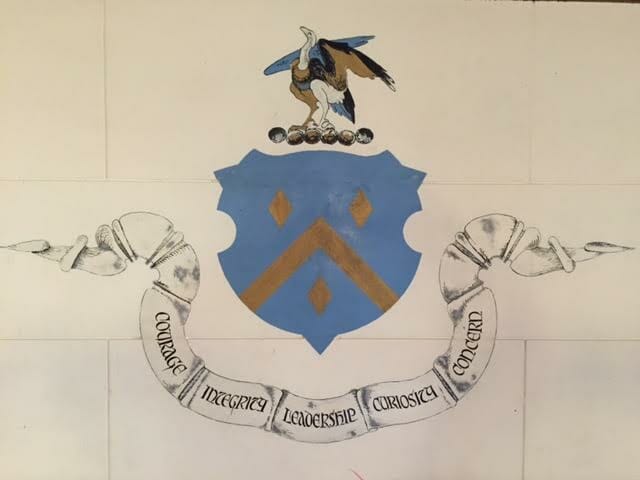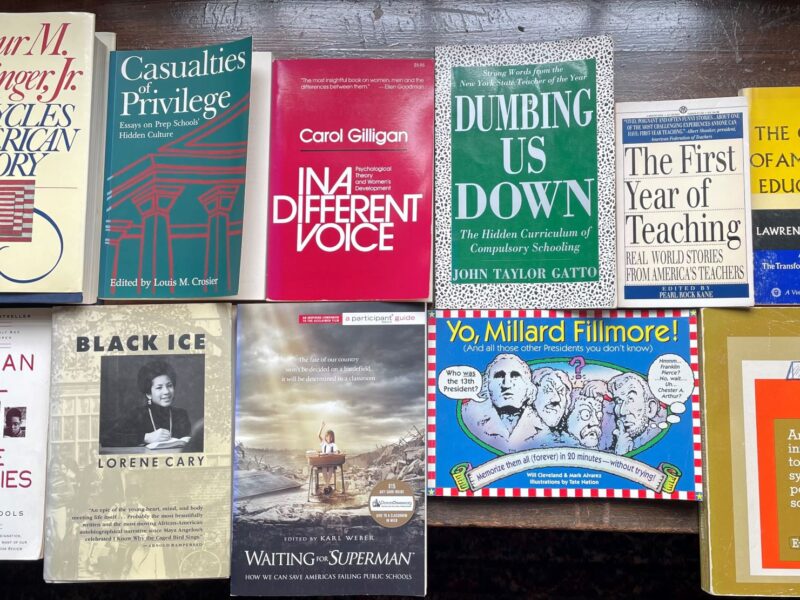The College Admissions Scandal is the result of a clear-cut mindset: College prestige matters more than personal character.
This mindset has risen – or, more accurately, fallen – to the level of a national moral crisis because parents, not teenagers, have been its engineer, some going so far as to cuckold their own children in their creative schemes to gain admission to the most prestigious schools possible.
Regarding my own college application experience of 45+ years ago, I recall a dinner conversation in the middle of my senior year of high school when my mother turned to me and asked, “So, what are you doing about that college thing, anyway?”
I explained that after visiting ten colleges (with neither mom nor dad accompanying me to any of the campuses), I had decided to apply to four, all in the “most selective” category. I observed, “I don’t see any sense in applying to any schools that I don’t really want to go to.”
With an admonishing tone, Mom asked, “So, you don’t have any fall backs (i.e. sure bets) in the mix?”
I responded, “No. But I discovered some decent schools that accept rolling admissions. I figure that I can apply to some of those in the event that I’m rejected at all four of my choices. [Note: A far more likely outcome than my teenaged naivete could comprehend] I might also just take a year off and try again later.”
With a disapproving frown, my mother replied, “That sounds like a terrible plan. But, it’s your life.”
The conversation at the dinner table then moved to a new topic.
(In case you are wondering, come April, I went two-for-four. My “plan” had worked.)
Parenting Today – A Shift in Approach
Although my parents’ approach seemed consistent with that taken by my friends’ parents, I cannot imagine one parent today in 100 handling this discussion the way that my mother handled that one back in 1972. Some say kids have changed. I say, parents have changed more. Today they are engaged in the affairs of their children to an extent that I could not have imagined when I began teaching in 1976.
To be sure, my parents cared about where I went to college. However, I absolutely knew that they cared far more about the kind of adult I would turn out to be. Whether complicit in or oblivious to the scandal in which they currently find themselves, these kids have to be confused about their parents’ valuation of personal and family character.
While their parents may deserve the blame for the admissions scandal, the students will suffer the consequences for years to come. This is because they will likely enter adulthood lacking the understanding that life does not actually get real until after college.
(Do not be surprised if their parents’ greatest sin turns out to be their decision to conceal this truth from them.)
That discovery may come as quite a shock. After all, not only do post-college challenges tend to get increasingly difficult, they tend to appear when least expected. In my case, college was “small time” compared to losing my mother to cancer, facing my own cancer, parenting a child with autism, and coming to terms with (my own) alcohol abuse.
Thankfully, I benefited from parents who placed their focus on nurturing the very qualities that would help me address those obstacles when they reared their ugly heads to rudely interrupt my life.
In fairness to today’s parents, competition for spots in America’s top colleges has become nothing less than blood sport. Five years ago in a Huffington Post piece (see “Playing the Odds: College Admissions”), I wrote, “… the 50 most-selective colleges present a very poor set of odds, ranging from a 6% to a 24% acceptance rate. Your prospects aren’t all that much better with the next 50: about 24% to 33%.”
Five years later, those numbers have only gotten tighter – 5% to 30% – with the top 15 most selective schools all in single digits.
So, what is a parent to do? I offer something to stop and something to start (doing).
Stop: Engineering Your Children’s College Plans
By the time your child applies to college, he or she has spent over a dozen years in school. I’m guessing that significant elements of his or her program have been devoted to college preparation both in terms of study and admissions.
For most kids, the college application is the very first of many times that they will take the vulnerable step of presenting their credentials to the world to face acceptance or rejection. Talk about a coming of age learning opportunity!
So, don’t spoil it with overzealous parental intervention.
Letting go does not mean that you do nothing. It also does not mean that you should act indifferent to the outcome.
Make no mistake, I deeply wanted my daughters to attend a college of which they would be proud. I also no doubt offered more advice than they wanted on more than a few occasions. However, there is a big difference between offering to help (“Let me know if you’d like me to critique your essay.”) versus meddling and/or badgering (“Make sure you don’t miss that deadline”… “You haven’t asked for that recommendation yet?!?”… “What, you’re not going to ask Uncle Frank to use his pull at Georgetown?!?”).
When in doubt, step back. And remain stepped back after your child enrolls. I have written two companion “College Success Guaranteed” books designed to help students and parents get off to a strong start in college. In College Success Guaranteed 2.0 – 5 Rules for Parents (Rowman, Littlefield – 2014), I propose a mantra for parents of college-bound students:
“Is this my issue?”
Let’s say you are concerned about a child procrastinating with college applications. Maybe you have a first-year student who can’t stand his roommate, hates the food, or feels victimized by a professor who is very stingy with As. Whatever the case, stop and ask yourself, “Is this my issue?”
Not only is “No” the correct answer in each of those circumstances, you will find that it usually is. When in doubt, answer “No.” You will be serving the long-term interests of your child while also preserving your sanity.
Start: Clarifying and Living Your Family Principles
Ask yourself this question: In my heart of hearts, which matters more: My child’s character or his/her college admissions?
If you are still reading this, you probably choose the former. You can also read on.
Next, ask this question: What principles are at the center of our family? Has everyone bought in?
Perhaps it would be useful to explain how we teach principles at Hyde School. Since our founding in 1966, we have strived to honor Five Words:

Courage – Integrity – Leadership – Curiosity – Concern
In the late 1980s, we added Five Principles:
Destiny – Humility – Conscience – Truth – Brother’s/Sister’s Keeper
We call the Five Words the “I words” (What I need to do) and the Five Principles the “We Words” (What we need to do as a community).
While ten concepts can be confusing, from Day #1 we explain that it is no coincidence that three of these ten – Integrity, Conscience, and Truth – deal directly with truth telling.
Hence, we unabashedly present truth as our supreme virtue. There is no gimmickry. No trick pony. There is, however, a lot of time spent in the trenches. Essentially, we barrage our community with messages and actions extolling the importance of Integrity, Conscience, and Truth with the goal of amassing sufficient mental muscle memory to fuel an inspiring esprit de corps, one that we call “the character culture.” (Note: Many among us have an impossibly high standard for the word “sufficient.”) Signs of this barrage strategy are omnipresent:
- “Truth is our primary guide.” (Our definition of our principle of Truth)
- A maxim in our Dean’s Office: “The most serious ethical violation one can commit at Hyde is to lie.”
- “The truth is both simple and easy because it has only one version.” (Laura Gauld ‘76, Head of School)
- A prominent campus slogan states: “When in doubt, bet on the truth. Still in doubt, bet on more truth.”
- Several times a year I hit the students with “Honesty is when our words match our deeds. Integrity is when our deeds match our words. Gotta do both.”
- Displayed prominently in the hallway of our classroom building, a sign reads:
The truth will set you free, but first it will make you miserable.
- At the core of our Family Education program is a simple slogan: Truth over Harmony.*
Overkill? Perhaps, but one thing is for certain: Had the parents, coaches, students, test proctors, and others who perpetrated the College Admissions Scandal made truth their primary guides, we would not even be talking about them. More importantly, they would all be making the most of their college plans, regardless of where they might happen to be enrolled.
Onward, Malcolm Gauld
* From The Biggest Job We’ll Ever Have – The Hyde School Program for Character-Based Education and Parenting by Laura and Malcolm Gauld (Scribner, 2002)


